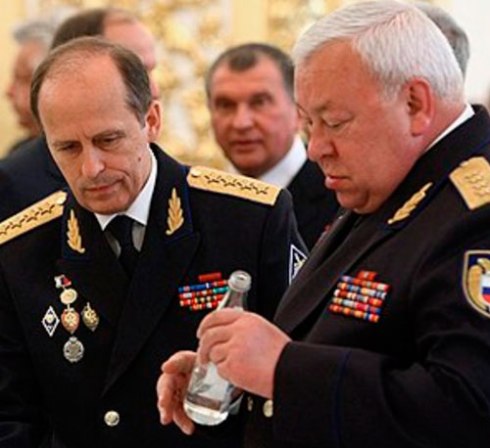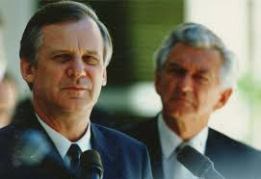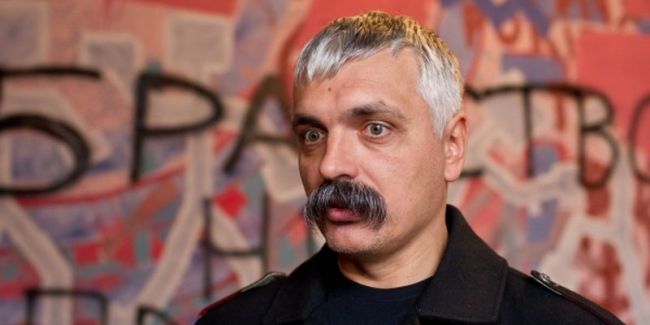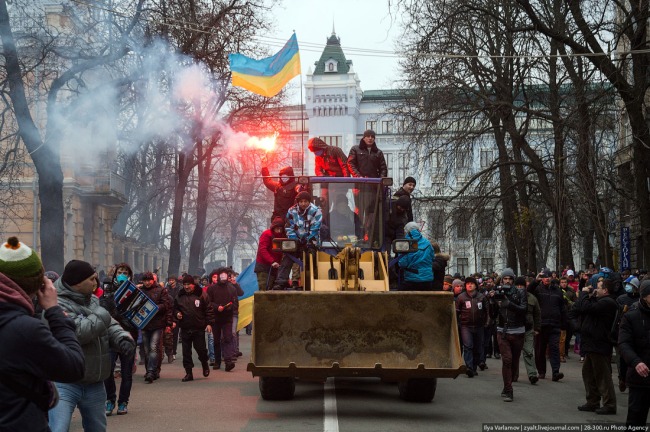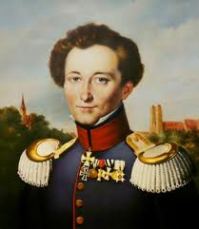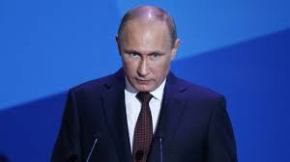City of Leningrad is not only the birthplace of the Revolution…
Comrades, listen carefully!
Lev Trotsky didn’t expect czarist officers who worked for him in building the Red Army to “repaint themselves as bolshenivks’, neither should we expect colonel’s generals to vest their loyalty to St. Petersburg.
In 1917 Leningrad (Petrograd at the time) was teeming with bolsheviks, mensheviks, anarchists and other political adventurers and populists, as is now Kremlin. Although the Kremlin lot are still loyal to their Leningrad upbringing in an ideational sense – they owe everything to the bolsheviks who created the Service in time of political survival. In current ‘identity crises’ and Putin’s bet on … imperialism (oh, really?) the old KGB salt will have to go through lobotomy to understand that Leningrad is no more. Its St. Petersburg.
Ok, that’s all rhetoric. Lets introduce our leningradians, leningradites, leninists:
N.Patrushev (left), A.Murov (right)
Alex Murov is closest to the colonel, heading Federal Security Service – guarding top politicians including the Patriarch. Of course he is from Leningrad KGB and yes he worked with Putin in the 90’s. From Putin’s rise to power Murov jumped through the ranks – in four years from major general to army general. And he is also running a successful business (altough the law forbids as he is a statesman) – Pulkovo airport. During late 90’s Murov was working for V. Cherkesov – at the time head of Petersburg FSB.
Viktor Cherkesov – Duma deputy, previous place of work – military procurement, and before that – FSKN (russian DEA). After being Murov’s boss he moved to Moscow to become deputy director of FSB (headed by Putin). Yes, of course he started in Leningrad’s KGB. Chemezov, in his scandalous article in the Kommersant, openly admitted that there was a ‘special services war’ going on in the country between FSB and FSKN. Murov, with his powerful FSS, was steering in between the two like Stalin used to – between Soldier’s Soviet and United Social-Democrats (mezhraionka) in revolutionary Petrograd. In the fight against the FSB Cherkesov lost but saved his face, after all they’re all gentlemen leningradians.
V. Cherkesov and VV
The head of FSB Nick Patrushev won the fight against FSKN. Once (or twice…) officers of both services opened fire on each other in Novgorod. Partushev headed FSB for nearly ten years and probably, for wining over FSKN or staying loyal to colonel for so long, he’s been promoted to become the secretary of the Federal Security Council. Some say that this body decides on nothing ever since general Lebed (ran against Yeltsin in 1996), who used to be the FSC secretary, accidentally crushed in a helicopter. But Patrushev is the weirdest of the three. He is trying to push through this idea of neo-nobility, the new russian gentry, the ‘true’ elites who have ‘official titles’ form the House of Romanov. I wonder what Duke of Kent makes of it.
Adventurers in Winter Palace
‘Noble leningradites’ in Kremlin are driven by corporate allegiance and personal ruthlessness. Like hundred years ago in Petrograd, when political blocs had their own militias to enforce their own mandates, todays numerous services are prepared to use theirs agents in the name of great revolutionary imperial soviet power… and comforts of life.

